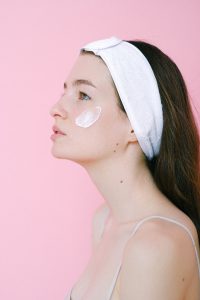Do You Really Know the Reason for Your Acne?

Acne is a common skin condition that affects millions of people around the world. While acne is often associated with adolescence, it can affect people of all ages and can be a source of frustration and embarrassment. While there are many factors that can contribute to the development of acne, one factor that is often overlooked is illness. In this beauty blog, we will explore the connection between illness and acne and provide tips for managing acne in those with chronic conditions.
Understanding the Connection Between Illness and Acne
Illness can impact the health of the skin in several ways, including its susceptibility to acne. One of the primary ways that illness can contribute to the development of acne is through its impact on the immune system. Illnesses such as colds and flu can weaken the immune system, making the body more vulnerable to infections, including those that can lead to acne.
Additionally, some chronic illnesses, such as polycystic ovary syndrome (PCOS), can cause hormonal imbalances that can lead to the development of acne. PCOS is a condition that affects the ovaries and can cause an increase in androgen hormones. Androgens can stimulate the sebaceous glands in the skin, leading to an overproduction of sebum, a natural oil that can clog pores and contribute to the development of acne.
Some medications used to manage chronic illnesses can also contribute to the development of acne. For example, medications such as corticosteroids and lithium can cause acne as a side effect.
Tips for Managing Acne in Those with Chronic Illness
While the connection between illness and acne is significant, there are steps that those with chronic conditions can take to manage their acne. Here are some tips for managing acne in those with chronic illness:
1. Follow a Gentle Skincare Routine
A gentle skincare routine is essential for managing acne in those with chronic illness. Avoid using harsh scrubs and toners that can irritate the skin and instead opt for gentle, non-comedogenic products. Cleansing twice a day with a mild cleanser can help keep the skin clean without stripping it of its natural oils.
2. Avoid Touching the Face
Touching the face can transfer bacteria and oils from the hands to the face, contributing to the development of acne. Avoid touching the face as much as possible and refrain from picking at pimples or blackheads, as this can worsen inflammation and lead to scarring.
3. Manage Stress
Stress can worsen acne by increasing inflammation and causing hormonal imbalances. To manage stress, try practices such as meditation, yoga, or deep breathing exercises. Additionally, talk to your healthcare provider about stress management strategies that may be helpful for your specific condition.
4. Stay Hydrated
Drinking enough water is important for maintaining overall health, but it’s particularly important for managing acne. Staying hydrated can help prevent dry skin and promote healing of acne.

5. Eat a Healthy Diet
A healthy diet can help promote overall health and may also help manage acne. Avoiding sugary and processed foods and eating a diet rich in fruits, vegetables, and lean protein can help keep the skin healthy and clear.
6. Talk to Your Healthcare Provider
If you have chronic illness and acne, it’s important to talk to your healthcare provider about your concerns. Your healthcare provider can help you identify any underlying causes of your acne and recommend treatments that are safe and effective for your specific condition.
7. Consider Medication
In some cases, medication may be necessary to manage acne in those with chronic illness. Your healthcare provider may recommend topical or oral medications, such as antibiotics or retinoids, to manage acne. It’s important to follow your healthcare provider’s instructions carefully and to be aware of any potential side effects.
8. Manage Hormonal Imbalances
For those with conditions such as PCOS, managing hormonal imbalances is essential for managing acne. Your healthcare provider may recommend hormonal treatments such as birth control pills or spironolactone to help regulate hormones and manage acne.
9. Be Patient
Managing acne can take time, especially in those with chronic illness. It’s important to be patient and consistent with your skincare routine and any treatments recommended by your healthcare provider. Don’t give up if you don’t see immediate results – it may take several weeks or even months to see improvement.
10. Be Gentle With Your Skin
Finally, it’s important to be gentle with your skin when managing acne. Avoid harsh scrubs and aggressive treatments that can irritate the skin and make acne worse. Instead, opt for gentle treatments and products that are designed for sensitive skin.
Acne is a frustrating and sometimes embarrassing condition, particularly for those with chronic illness. However, by following these tips and working closely with your healthcare provider, it’s possible to manage acne and achieve healthy, clear skin. If you have any concerns about your skin health or the impact of your chronic condition on your skin, be sure to talk to your healthcare provider for guidance and treatment options.

